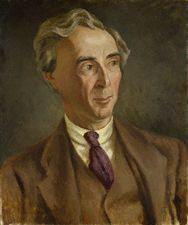Laughter, an Essay on the Meaning of the Comic. By Henri Bergson. Authorized translation, by Cloudesley Brereton and Fred Rothwell. London: Macmillan and Co., 1911. Pp. vii, 200
IT HAS LONG been recognized by publishers that everybody desires to be a perfect lady or gentleman (as the case may be); to this fact we owe the constant stream of etiquette-books. But if there is one thing which people desire even more, it is to have a faultless sense of humour. Yet, so far as I know, there is no book called “Jokes without Tears, by Mr. McQuedy”. This extraordinary lacuna has now been filled. Those to whom laughter has hitherto been an unintelligible vagary, in which one must join, though one could never tell when it would break out, need only study M. Bergson’s book to acquire the finest flower of Parisian wit. By observing a very simple formula, they will know infallibly what is funny and what is not; if they sometimes surprise their unlearned friends, they have only to mention their authority in order to silence every doubt.
“The attitudes, gestures and movements of the human body”, says M. Bergson, “are laughable in exact proportion as that body reminds us of a mere machine.”
When an elderly gentleman slips on a piece of orange peel and falls, we laugh, because his body follows the laws of dynamics instead of a human purpose. When a man falls from a scaffolding and breaks his neck on the pavement, we presumably laugh even more, since the movement is even more completely mechanical. When the clown makes a bad joke for the first time, we keep our countenance, but at the fifth repetition we smile, and at the tenth we roar with laughter, because we begin to feel him a mere automaton. We laugh at Moliere’s misers, misanthropists and hypocrites, because they are mere types mechanically dominated by a master impulse. Presumably we laugh at Balzac’s characters for the same reason; and presumably we never smile at Falstaff, because he is individual throughout. “Was it for me to kill the heir-apparent? Should I turn upon the true prince?” is not the remark of an automaton; therefore it is tragedy, not comedy as was hitherto supposed.
M. Bergson’s general philosophy is largely a protest against the attempt to bind down living things by the fetters of cast-iron formulas. Yet his Latin instinct for order has proved too strong for him, and he has attempted to imprison laughter, the most living of all living things, within a formula which, in spite of his amazing ingenuity, cannot be made to apply to more than a tiny fraction of the jokes that will occur to any reader. Lamb’s answer to the man who asked about the prospects of the turnip crop, “I believe it depends upon the crop of legs of mutton,” comes under a formula exactly the opposite of M. Bergson’s: it depends upon assuming something like human purpose in what is really mechanical. No doubt surprise is an element in laughter; and it is chiefly this element, I think, which makes M. Bergson’s instances amusing.
Charles Lamb’s humour suggests another criticism. M. Bergson considers that absence of feeling is characteristic of laughter; sympathy, he says, makes the whole world gloomy, whereas the comic makes its appeal to intelligence, pure and simple. This is certainly not true of Lamb. In quite a different way, Hamlet’s wit is full of passion; in quiet times, he would have made many fewer jokes.
The truth seems to be that the comic differs with the individual, the country, and the age. Latin wit is different from Teutonic humour; the laughter of the Parisian is different from the laughter of the Londoner. For this reason, it would seem to be impossible to find any such formula as M. Bergson seeks. Every formula treats what is living as if it were mechanical, and is therefore by his own rule itself a fitting object of laughter.
B. RUSSELL
* Bertrand Russell, “The Professor’s Guide to Laughter,” The Cambridge Review 33 (Jan 18 1912), 193-4 Review of Henri Bergson, Laughter, an Essay on the Meaning of the Comic (Macmillan, 1911)
